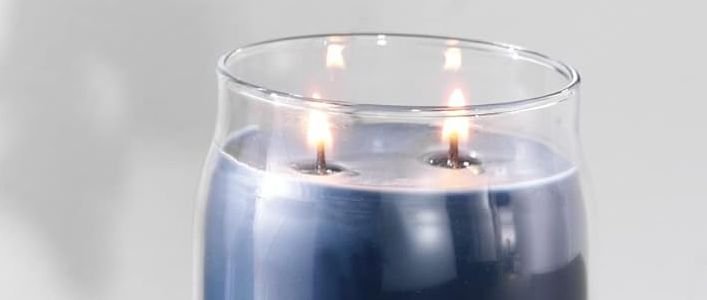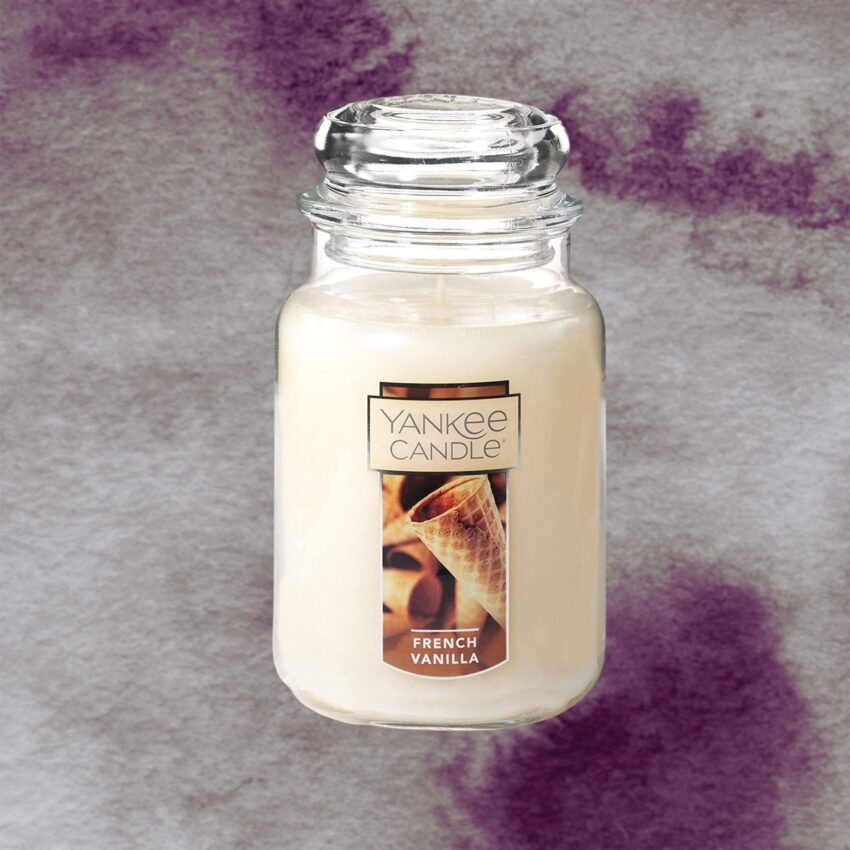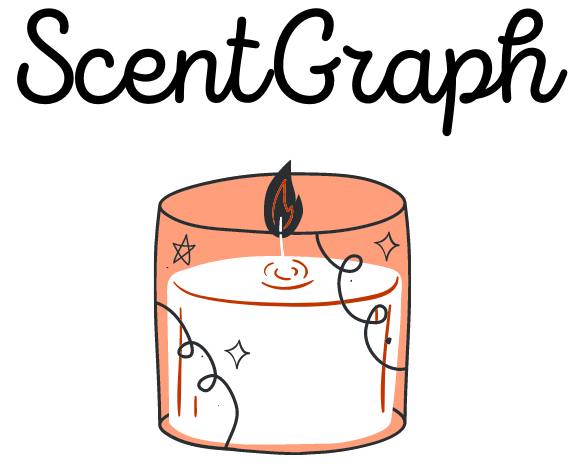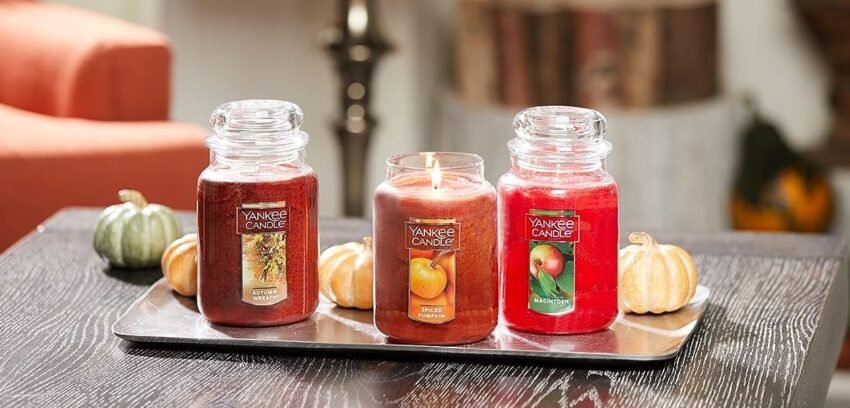Yankee Candles is amongst the best-known candle brands in the USA. They are generally considered high-quality and well-made candles. However, some rumors persist, especially related to the use of these candles.
So, are Yankee candles toxic? And how do they affect your health or that of your pets?
Well, the simple answer is that Yankee Candles are not toxic, especially the way we understand these things.
These claims of toxicity usually come down to the type of wax used or the presence of other ingredients, which is worth a deeper look.
So, if you want a more robust and detailed explanation, be prepared to dive into the details!
Understanding The Use Of Yankee Candles And Claims Of Toxicity
There are three major constituents of a Yankee Candle that come into play when the candle burns. These are:
- The wax
- Candle wick
- Fragrance
The candle container might also be considered here, but it’s not really relevant to the burning of a candle or any claims of toxicity. As such, the container will not be discussed in this article.
Is The Wax Used In Yankee Candles Toxic?
While there are different types of waxes and blends used for Yankee Candles, the most common wax used is paraffin wax. And many candle companies claim that paraffin wax is toxic. This is especially so in the case of companies working with other kinds of wax like soy wax or paraffin wax.
But how much credence can be placed on that claim?
Well, I discussed these claims in detail in a previous article on whether paraffin wax candles are bad for users.
Going by the scientific research available and the opinions of the National Candle Association (USA), European Candle Association, and the Latin American Candle Manufacturers Association, paraffin wax doesn’t seem to be the devil it’s made out to be.
Similarly, other was types don’t really have a huge edge over paraffin wax when it comes to indoor pollution. And yes, any wax on burning in a candle will release some chemicals like carbon monoxide, VOCs (volatile organic compounds), and several others.

So, this is not to say that paraffin wax candles are absolutely clean. What this means is that other types of wax candles are not decisively better than paraffin wax.
I should also mention that paraffin wax is largely made from petroleum. Many people choose to avoid paraffin wax because of its origin, and that is justifiable.
However, none of this means that paraffin wax, or the wax used in Yankee candles is toxic.
About The Wick In Yankee Candles
Yankee Candles uses wicks made from pure cotton. These are completely safe and don’t emit any toxins.
Some people have concerns about candle wicks in general, because the belief is that they may contain lead. Yankee candle wicks don’t contain lead.
In 2003, the U.S. Consumer Product Safety Commission (CPSC) banned the manufacture and sale of lead-cored wicks and candles with lead-cored wicks.
That said, members of the NCA (National Candle Association) in the USA had decided not to use lead wicks somewhere in the mid-1970s. In a way, this is an interesting example of an industry taking action way before regulation by the government.
Candles (or candle wicks) made in the USA follow this ban. It works for most of the imports as well. However, some importers might be trying to make a quick buck and use lead-cored wicks.
This definitely isn’t the case with Yankee Candles. In fact, if you’re concerned about the wick quality, Yankee Candles might be a better choice than random no-name brands.
About The Use Of Fragrance
Most scented candles use synthetic fragrance oils for adding scent, though natural essential oils or a blend of essential oils and fragrance oils might also be used. Fragrance oils are generally made specifically for use with high-temperature applications like candles, which is one of the differentiating aspects from perfume or perfume oil.
Things are a bit iffy with fragrance as far as emissions are concerned.
Some people argue that essential oils are better in candles because of their natural origin. But if we’re being cautious, it’s natural to accept that things change when fire is involved. So, the origin alone is no explanation at all.
As things stand, given the various components of fragrance in scented candles, we cannot be sure of what type of emissions they provide. However, if we are to consider some reports on candle emissions, there doesn’t appear to be a significant risk involved.
There is a good chance that scented candles release some VOCs (volatile organic compounds), while others might also have some phthalates. While these are undesirable chemicals, their presence may not necessarily indicate toxicity.
And this is a problem common to all scented candles, not just Yankee Candles or associated companies.
It might perhaps be more sensible to consider candles as a potential source of indoor pollution, rather than going with the more extreme opinion like toxicity.

What Can I Do If I Don’t Want To Burn The Candle?
Considering all these controversies, many people might have concerns about actually burning the candles. If you have misgivings about burning a Yankee Candle, put your worries aside! There is nothing to suggest that these candles are toxic.
In other cases, people might want to stay away from burning a candle, even if to avoid having a flame. A solution for this scenario is the use of candle warmers. These gadgets let you enjoy the fragrance of a candle without actually having to burn the candle.
Similarly, you could use the candle in a wax warmer. This method will destroy the candle, as you would cut chunks of wax from the candle for use in the wax warmer. However, you will be able to enjoy the fragrance without having to light the candle.
FAQs On Yankee Candles And Their Use
Are Yankee Candles Vegan?
Most of the Yankee Candles lineup appears to be vegan-friendly. The wax is a blend of soy wax and paraffin, the wicks are cotton, and the fragrances might be synthetic or plant-derived. So, the average scented candle might very well be vegan-friendly.
On the other hand, Yankee Candles does use some beeswax for the candles, especially the tall tapered candles. And beeswax obviously isn’t vegan.
Also, while beeswax candles have little to do with conventional scented candles, it doesn’t appear that Yankee Candles is doing much to prevent cross-contamination. As such, some candles that aren’t supposed to contain beeswax might contain trace amounts.
I’d say that this isn’t a problem, nor is it intentional. However, it is the consumer who decides if they find Yankee candles to be vegan, especially in light of the information here.
Are Yankee Candles Safe For Dogs/Pets?
Pets like dogs and cats are more sensitive to smell than humans. So, burning a scented candle might have an effect on pets. Pets may or may not like the scent. Or, they might like some scents or dislike others. Similarly, pets might be uncomfortable around some scents.
When used as intended, Yankee Candles are safe for pets like dogs and cats. The pets might find some scents overwhelming, but these scents are not toxic to the pets.
Does Yankee Candles Make Soy Candles?
Yankee Candles often uses a blend of soy wax and paraffin wax for its candles. The company also makes some candles from soy wax. So, if you prefer soy wax to paraffin, there’s a chance that you’ll find the right candle from the offerings of Yankee Candles.
Conclusion
Candle lovers or shoppers might sometimes run into claims that say Yankee Candles are toxic. Yankee Candles is amongst the largest candle brands in the USA, so such claims can be shocking.
However, there is no real evidence to suggest that such claims have merit. The company uses safe, non-toxic materials for its candles.
Many of the claims of toxicity rest on the use of paraffin wax in these candles. And while these claims say they have scientific evidence, it has been proven to be unreliable. More extensive studies haven’t found anything specifically wrong with paraffin wax.
All things considered, it should be safe to say that Yankee candles aren’t toxic or bad for you.

